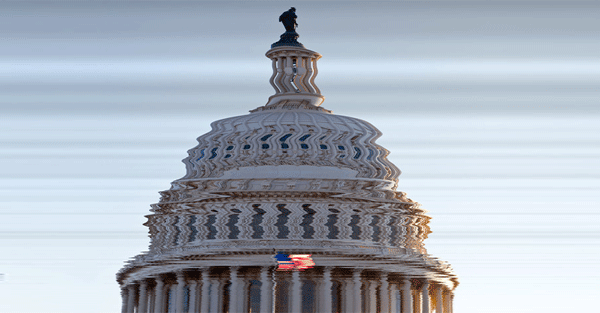
Populism Is Not Fascism But It Could Be a Harbinger … Right-wing populism—indeed, populism of any kind—is a symptom of democracy in trouble; fascism and other revolutionary movements are the consequence of democracy in crisis. But if governments do not do more to address the many social and economic problems the United States and Europe currently face, if mainstream politicians and parties don’t do a better job reaching out to all citizens, and if conservatives continue to fan fear and turn a blind eye to extremism, then the West could quickly find itself moving from the former to the latter. –Foreign Affairs Magazine
Yet another article from the Council on Foreign Relations mouthpiece Foreign Affairs exploring the “populism versus fascism” meme. Foreign Affairs seems obsessed with this propagandist paradigm, which has exploded in both the mainstream and alternative media since we first analyzed it in June, here.
Predictably, the solution to “populism” is more and better government. Freedom is never seen as a problem-solving alternative.
And the article concludes –as we will explain further down – by warning that Trump’s successful criticisms could jeopardize democracy itself and that such observations ought to be downplayed considerably or done away with entirely.
By properly using this meme, then, the article is able to make two strong and logical points:
Globalism itself is not examined much in this article as an alternative to populism, but lurks in the background as a solution to be further implemented should more activist government fail.
The idea is to create a a political and social paradigm to describe the ascension of anti-globalist sentiments in a controllable manner.
More:
Like their predecessors, today’s right-wing extremists denounce incumbent democratic leaders as inefficient, unresponsive, and weak.
They promise to nurture their nation, protect it from its enemies, and restore a sense of purpose to people who feel battered by forces outside their control. And they pledge to stand up for “the people,” who are often defined in religious or racial terms.
… Current right-wing extremists are thus better characterized as populist rather than fascist, since they claim to speak for everyday men and women against corrupt, debased, and out-of-touch elites and institutions.
The article continues to develop this ultimate point – that populists can exist within a democratic setting, and that democracy itself can “permit their societies to opt for a do-over by later voting them out.”
This is part of the article’s larger argument that “democracy” must be exercised robustly to ensure that “revolutionary threats” are defused. This can take place by ensuring that “democratic institutions, parties, and politicians more responsive to the needs of all citizens.”
The problems that the article points to include “rising inequality, stagnating wages, deteriorating communities, congressional gridlock, and the flow of big money to campaigns.”
Of course, one can argue that “democracy” is responsible for these very problems, but that would undercut the point of the article, which is to argue for increased government activism.
Additionally, the article points out that “conservatives should be particularly wary of embracing right-wing populists.” In this way, the article attempts to undercut any coalition between Trump’s backers with their libertarian tendencies and the GOP’s more conservative spectrum.
Above all, the article wants to ensure that criticism remains within reasonable – acceptable – political bounds as they have come to be understood in the early 21st century. Toward the very end of the article we come across this astonishing graf:
Mainstream Republicans who make bogus claims about voter fraud, rigged elections, and the questionable patriotism and nationality of President Barack Obama in order to appeal to the extremist fringes are playing an extremely dangerous game, since such rhetoric fans citizens’ fear and distrust of their politicians and institutions, thus undermining their faith in democracy itself.
Basically, this sums up a good deal of the rhetoric of Trump’s entire campaign. In many ways he did repudiate democracy, which is indeed an abysmal form of government, especially in the modern era.
The article is surely a good example of how elite memes define a socioeconomic and political narrative, and how the definition provides a range of options. Another article might be written disputing the idea that populism can be controlled by government activism and make the argument instead populism needs to be eradicated as a fascist threat.
Conclusion: As we have pointed out, establishing the initial meme is most important when seeking to control the larger narrative – and to anticipate its various permutations. In fact it is as bit like music. Once the theme is recognizable, various alternatives can be explored. Gradually a “consensus” is reached, but one that retains the underlying (authoritarian) melody.
